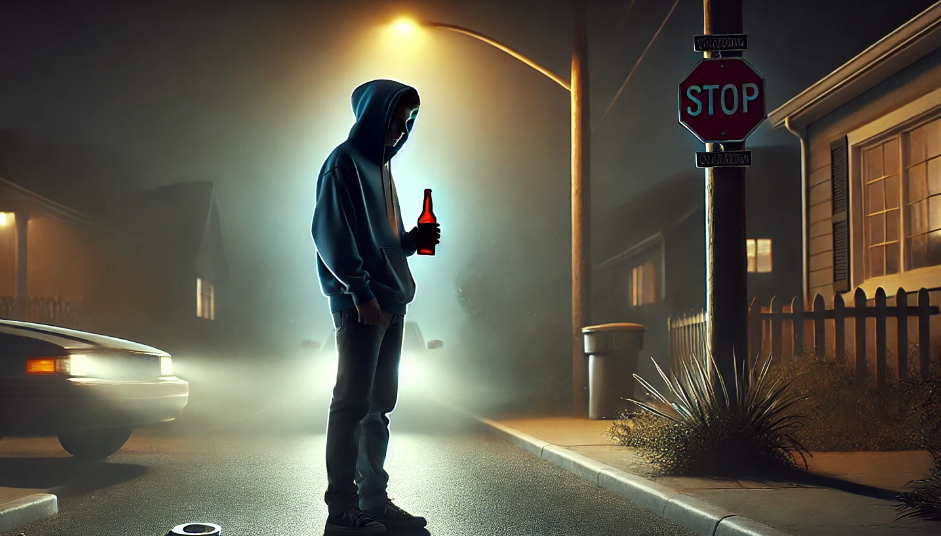Alcohol & Athletic Performance: What Teens Don’t Realize
Many teen athletes spend hours practicing, training, and dreaming of victory – whether it’s a state championship or simply a personal best. Yet some of those same athletes may not realize that alcohol can quietly undermine their hard work. The truth is, consuming alcohol has serious negative effects on athletic performance and recovery. It’s not just about avoiding a hangover at practice; even moderate drinking can impair coordination, endurance, and muscle development, putting teen athletes at a disadvantage on and off the fieldtalkitoutnc.org.
The Science: Alcohol’s Impact on the Body
Alcohol is a depressant, meaning it slows down the body’s systems. For an athlete, this is bad news. Reaction time and hand-eye coordination – crucial for almost every sport – are dulled by alcoholtalkitoutnc.org. Balance and fine motor skills suffer, which could mean missed catches, slower sprints, or even increased risk of injury during play. Experts note that alcohol isn’t performance-enhancing at all; instead, it “slows the body down,” affecting balance, motor skills, and information processingtalkitoutnc.org. In the days after drinking, the body is busy metabolizing alcohol and recovering, which can hinder the healing process and immune system. This means injuries might take longer to heal and workouts may feel harder as the body hasn’t fully recoveredtalkitoutnc.org.
Hydration is another critical factor. Alcohol is a diuretic – it causes the body to lose fluids. An athlete who drinks on a Saturday night may find themselves dehydrated at Monday’s practice, leading to cramps, fatigue, or heat illness. Muscle growth and endurance can also be affected; the body prioritizes breaking down alcohol over other metabolic processes, potentially limiting muscle repair and energy storage. In short, that “one night of fun” can sabotage several days of training gains.
The Hidden Consequences for Teen Athletes
Beyond the direct physical effects, underage drinking can have broader consequences on an athlete’s life. Many schools and youth leagues have strict no-alcohol rules; being caught drinking can lead to suspension from games or even being dropped from a team. Alcohol use is also linked to more accidents and injuries in youth generally – about 188,000 people under 21 visited emergency rooms for alcohol-related injuries in a single yearniaaa.nih.gov. Those injuries include things like falls or accidents that could end a sports career in a heartbeat. A teen who’s serious about their sport should know that drinking significantly raises the chance of an injury that could bench them for the season (or longer). Even academically, alcohol can hurt performance – concentration and memory suffer, so student-athletes might see their grades drop, affecting college eligibility.
It’s also important to bust the myth of “party and play.” Some high schoolers might see pro athletes partying in the off-season and think a few beers won’t hurt them. But teen bodies and brains are still developing. Underage drinking can interfere with normal growth and brain developmentcdc.gov, which for an athlete could mean not reaching full potential in speed, strength, or mental acuity during competition.
Guidance for Athletes, Coaches, and Parents
Actionable Insight: If you’re a teen athlete, consider your goals – winning the next game, improving your personal stats, staying in peak shape. Remember that alcohol offers zero benefits toward those goals. In fact, drinking even one or two nights a week gives an athlete an elevated risk of injury and slows recoverytalkitoutnc.org. Instead, treat your body like the important equipment it is: fuel it with water, healthy food, and rest, not alcohol.
Coaches and parents can reinforce this message. Coaches should set clear expectations that team members stay substance-free and explain why – not just because “it’s the rule,” but because it will make them better athletes and teammates. Some coaches in Salmon incorporate educational sessions on how alcohol and drugs affect performance, bringing in facts and real stories to drive the point home. Parents can help by not enabling any “post-win beers” or other alcohol-related celebrations, even if some families might think it’s harmless. Call to Action: Talk to your teen athlete about how alcohol can derail their athletic and academic progress. Celebrate their achievements with things that truly support them – a special meal, new gear, or a gathering with friends – rather than normalizing alcohol. By keeping our young athletes alcohol-free, we’re setting them up for stronger bodies, sharper minds, and greater success in both sports and life.
Sources: NIAAA, CDC, TalkItOut NC (Stanford Univ. insights)


Comments
Post a Comment